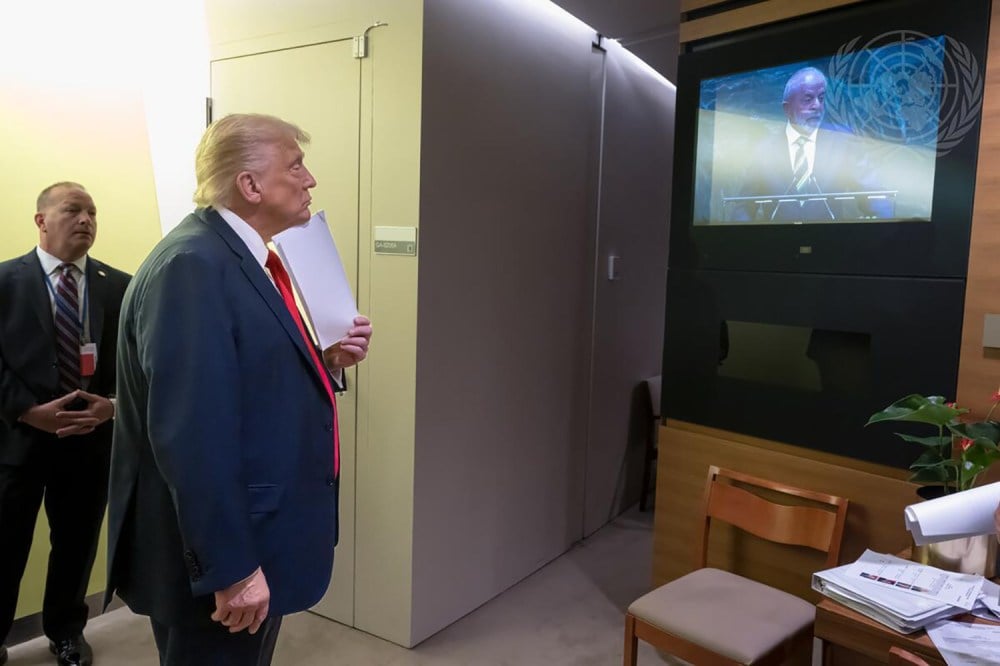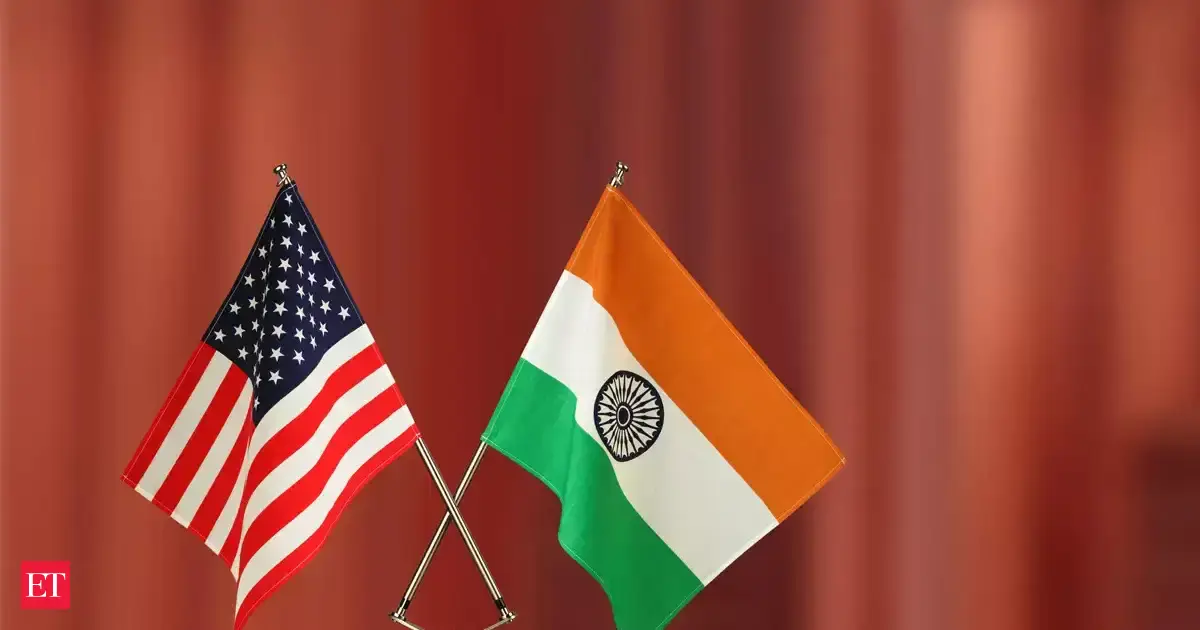
Welcome back to Foreign Policy’s Latin America Brief.
The highlights this week: Regional leaders convene at the U.N. General Assembly, Chile’s presidential front-runner lays out his immigration policy, and Mexico talks trade with Canada.
Unconventional Moments at UNGA
Plenty of things were predictable at this week’s high-level meetings of the United Nations General Assembly (UNGA) in New York City.
Those included Latin American leaders’ talking points: Colombian President Gustavo Petro criticized the global war on drugs, Argentine President Javier Milei slammed the U.N. Sustainable Development Goals, and Brazilian President Luiz Inácio Lula da Silva called for global south countries to play a bigger role in international governance.
Chilean President Gabriel Boric, meanwhile, took the long-rumored step of endorsing former Chilean President Michelle Bachelet in the race for the next U.N. secretary-general. The position traditionally rotates among world regions, with Latin America and the Caribbean up next.
But UNGA brought plenty of surprises, too. In his address on Tuesday morning, as U.S. President Donald Trump listed his usual grievances against Brazil, he issued an off-the-cuff qualifier: He had a “little problem saying this” because he had embraced Lula moments earlier in the staging area to the podium.
The two had “excellent chemistry,” Trump said, and planned to meet next week. He spent about as much time praising Lula as he did lambasting Brazil, saying his positive impression of the Brazilian president was a “good sign.”
Trump’s remarks came during the worst moment in U.S.-Brazil relations in decades. The United States has applied hefty tariffs on Brazilian goods and sanctioned Brazilian judges as punishment for the trial and conviction of former President Jair Bolsonaro, a Trump ally.
Lula’s political allies immediately branded the exchange with Trump as a victory. “No one in the world resists Lula’s charm,” the leader of his congressional coalition told the press. Lula is known for having positive interpersonal relations with some leaders he disagrees with; during his first two terms in office, from 2003 to 2011, they included U.S. President George W. Bush.
Other factors might also explain Trump’s softening toward Brazil. For one, the U.S. president is unpredictable. And his threats against Brazil did not stop Bolsonaro’s conviction.
Brazilian business leaders also recently met with members of Trump’s circle in Washington, arguing that U.S. tariffs were causing negative consequences for U.S. consumers, Folha de S. Paulo reported on Tuesday. Some of the businesspeople reportedly emphasized that U.S. aggression was making Lula more popular.
The face-to-face nature of UNGA provided a valuable chance for the two leaders to ease tensions, Andre Pagliarini wrote in Foreign Policy. Now, Brazilian diplomats’ energy will turn to preparing for the planned conversation between Lula and Trump—and trying to avoid the friction of some of Trump’s other one-on-ones with world leaders.
UNGA’s second big headline for Latin America was about Argentina.
After Milei’s right-wing party lost big in Buenos Aires provincial elections this month—foreshadowing a potential poor result in the October midterms—investors in the country started selling off Argentine pesos. To keep the currency from falling below the government’s target exchange rate, the central bank last week spent more than $1 billion buying pesos.
Argentina doesn’t have enough reserves to keep spending dollars so quickly. So Milei appealed to his political allies in the Trump administration for help. This week, he got results.
U.S. Treasury Secretary Scott Bessent wrote on Wednesday on social media that the United States was negotiating a $20 billion swap line with Argentina. Washington is also prepared to purchase dollar bonds and issue the country new credit if needed as part of coordination “to prevent excessive volatility,” he added
If the upcoming midterms have a “positive” outcome, Bessent said, he will direct new U.S. direct investment into the country. Separately, Trump endorsed Milei for reelection in 2027.
The size and explicitly politicized nature of the U.S. financial intervention in Argentina’s economy are unusual. Bessent recognized as much, writing that Trump’s endorsement of Milei was “rare” and that the U.S.-Argentina relationship had “geopolitical strategic importance.”
If Bessent’s interventions are successful, they will sustain investor confidence in the peso—and the United States will not need to deploy some of the tools he has put on the table, such as issuing new credit. That much will not be clear until after Argentina’s midterms.
In the meantime, the hefty U.S. support for Buenos Aires raises questions about what Washington might have asked for in return. “There is no free lunch in foreign affairs,” political risk analyst Thiago de Aragão wrote on social media on Wednesday.
Aragão went on to detail the concessions that the United States might be seeking from Argentina behind the scenes, including U.S. access to Argentina’s critical minerals, export controls to block certain Chinese technologies, and tighter military cooperation. On Tuesday, Argentine newspaper Clarín reported that Washington had asked Argentina to cancel its preexisting currency swap arrangement with China.
Trump’s bailout of Argentina, Aragão wrote, could mean “cash today for sovereignty choices that last a decade.”
Upcoming Events
Monday, Sept. 29, to Friday, Oct. 3: Trump and Lula are expected to speak.
Tuesday, Sept. 30: The U.N. Security Council is due to discuss Haiti.
What We’re Following
Deliberating U.S. strikes. The U.S. Drug Enforcement Administration urged the Trump administration to carry out direct military strikes on drug trafficking targets inside Mexico this year, the Washington Post reported last week. Some senior Trump administration officials reportedly pushed back against the recommendation—which so far has not come to fruition—arguing that Congress had not authorized such strikes.
The administration did opt to move forward with military strikes on boats that it alleges are carrying drugs from Venezuela, prompting U.S. congressional pushback. The attacks also featured heavily in an emergency meeting of Community of Latin American and Caribbean States (CELAC) foreign ministers on the sidelines of UNGA this week.
CELAC has few concrete accomplishments to its name. But amid U.S. military threats against the region, it could gain new energy as a consultative forum.
Canada-Mexico ties. Canada and Mexico will coordinate ahead of an upcoming review of the U.S.-Mexico-Canada Agreement (USMCA) and will each boost rail and ship capacity in an effort to grow bilateral trade, Mexican President Claudia Sheinbaum and Canadian Prime Minister Mark Carney announced in Mexico City last week. They launched a four-year action plan that foresees cooperation on ports, research and development, and trade promotion.
Even as USMCA has served as the foundation for political and economic relations in North America in recent years, Canada and Mexico have sometimes had a distant relationship. Only around 3 percent of Mexican exports currently go to Canada. After months of grating economic uncertainty from the United States, the leaders said they aim to change that.
Latin music in D.C. In September and October, a string of musicians from across the hemisphere are giving small-scale live performances in Washington as part of NPR’s celebration of Hispanic Heritage Month in the United States. They are part of the Tiny Desk Concert series, recordings of which are free to watch online.
Performers so far have included national icons such as Colombian vallenato artist Carlos Vives and Argentine rocker Fito Páez as well as rising stars such as Brazil’s Luiza Brina and Colombia’s Lido Pimienta.
A wide-ranging list of artists is still on deck, including younger generations embracing folk melodies—such as Mexico’s Silvana Estrada—and a particularly quirky choice, a group of singing puppets that became famous on the satirical Chilean television show 31 Minutes.
The show gained popularity with children and adults across Latin America in the 2000s for its humorous and educational dives into topics such as endangered species and how the sewage system works. 31 Minutes also parodied pop music videos, with songs devoted to mundane themes (such as the hit “I Got a Bad Haircut.”)
Though the show is devoted to making people laugh, its creator told the Clinic news site that he is preparing for Tiny Desk with the utmost seriousness: “We are putting all of our concentration, knowledge, and rigor into it.”
Question of the Week
FP’s Most Read This Week
Trump Is Learning Geopolitics 101 in Real Time by Suzanne Nossel
Trump to U.N.: ‘Your Countries Are Going to Hell’ by Christina Lu
America’s Infuriating and Irreplaceable Role at the U.N. by Richard Gowan
In Focus: Chile’s Presidential Front-Runners
The campaign for Chile’s Nov. 16 presidential election is in full swing. The candidates held their first televised debate this month, and on Monday, right-wing front-runner José Antonio Kast unveiled new policies on one of the top issues in the race: immigration. Kast made it to the last presidential runoff election in 2021 but lost to Boric.
Kast pledged to take a “Chileans first” approach and make undocumented migration a criminal offense.
In recent years, some undocumented migrants in Chile have been eligible for programs granting them permission to live and work. The country has absorbed many of the Venezuelans fleeing economic and political turmoil over the last decade. But Kast has said he would not grant legal status to undocumented Venezuelans in Chile, who were estimated in 2023 to number more than 200,000.
Chile’s presidential election typically includes two rounds, and Kast overwhelmingly leads polls for a potential runoff vote. The other front-runners are conservative Evelyn Matthei and leftist Jeannette Jara. Many polls show right-wing candidates in fourth and fifth place. Altogether, the outlook for the election shows how far Chilean politics has swung to the right since Boric was elected.
Kast has pledged to shrink the state’s involvement in Chile’s economy, remove restrictions for private investors in the lithium sector, and increase the military’s role in fighting crime.
Matthei also pledges more aggressive stances on migration and crime—this week saying she would deploy 10,000 new military police across the country—but takes a more moderate stance on economic issues.
Jara said she would legalize Venezuelan migrants in the country while also increasing the minimum wage, stepping up police work, and expanding prisons.
Beyond migration policy, other aspects of foreign policy have not featured prominently in the election so far. While some of Kast’s right-wing peers in Latin America have criticized China, he said out of the gate that he would not cut economic relations with Beijing.



